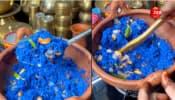New Delhi: Scientists have moved a step closer to developing a treatment for chikungunya, a disease spread by the Aedes mosquito.
According to Straits Times, scientists from Singapore and France have discovered two antibodies that could fight against chikungunya, a disease that currently has no available vaccine or specific treatment.
The two monoclonal antibodies, which were developed from single cells, could neutralize several strains of the virus in a laboratory setting, reports English.news.cn.
The team, from the Singapore Immunology Network and French biopharmaceutical company Vivalis and led by Lucile Warter, started research in August 2009 using B cells - the white blood cells that play a key role in immunity.
The cells were taken from a donor infected with chikungunya and given the ability to proliferate indefinitely, amplified and cloned.
The scientists then used the cells to identify and generate the antibodies using a specific technique of Vivalis.
The technology was the only one that enabled the scientists to identify and generate human monoclonal antibodies, which are more efficient and have less side effects than conventional polyclonal drugs developed from multiple cells, said Warter.
The antibodies work by binding more efficiently with antigens, foreign particles that enter the body, as they target only certain kinds of antigens.
Warter said the treatment would not be a vaccine but a passive immunotherapy, adding that the treatment could be in the market in perhaps 10 years.
The finding has been published last month in the Journal of Immunology.
ANI
















